Health Benefits Of Mullein Tea: The Brew Healing You Inside Out
The health benefits of mullein tea range from boosting your immune system to providing healthier skin. This beverage heals you internally and externally. Read on.
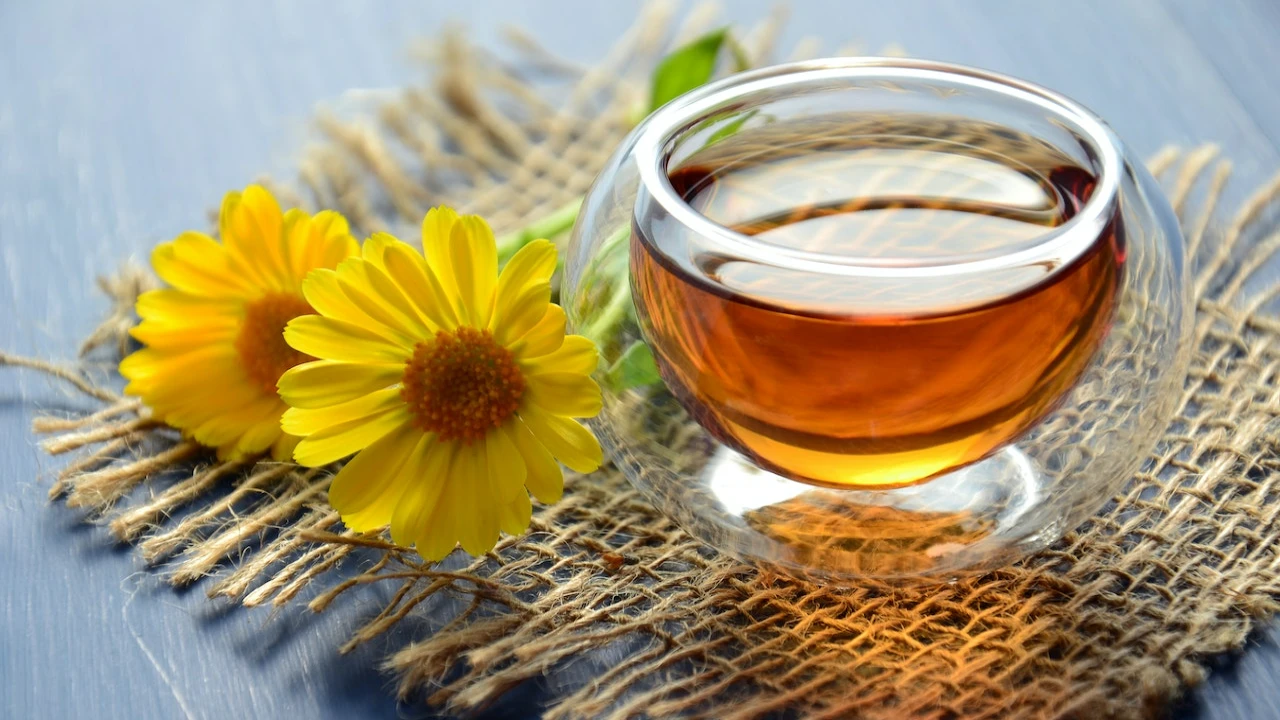
Mullein tea, derived from the leaves and flowers of the mullein plant (Verbascum thapsus), holds the key to a realm of wellness and vitality. The health benefits of mullein tea are well-known among fitness freaks. Considered as the ultimate elixir, this herbal infusion, used for coughs and congestion, or as a soothing tonic to calm digestive discomfort, may be the key to a healthier lifestyle.
As with any herbal remedy, it's important to approach mullein tea with knowledge and caution. We will also touch upon Mullein tea side effects and its interactions with medicines to help you make informed decisions.
Discover how this natural remedy may solve your problems. Uncover its health benefits, unravel its history, and embrace its potential to enhance your well-being. Get ready to sip on the healing brew and experience the transformative power of mullein tea.
What Is Mullein Tea?
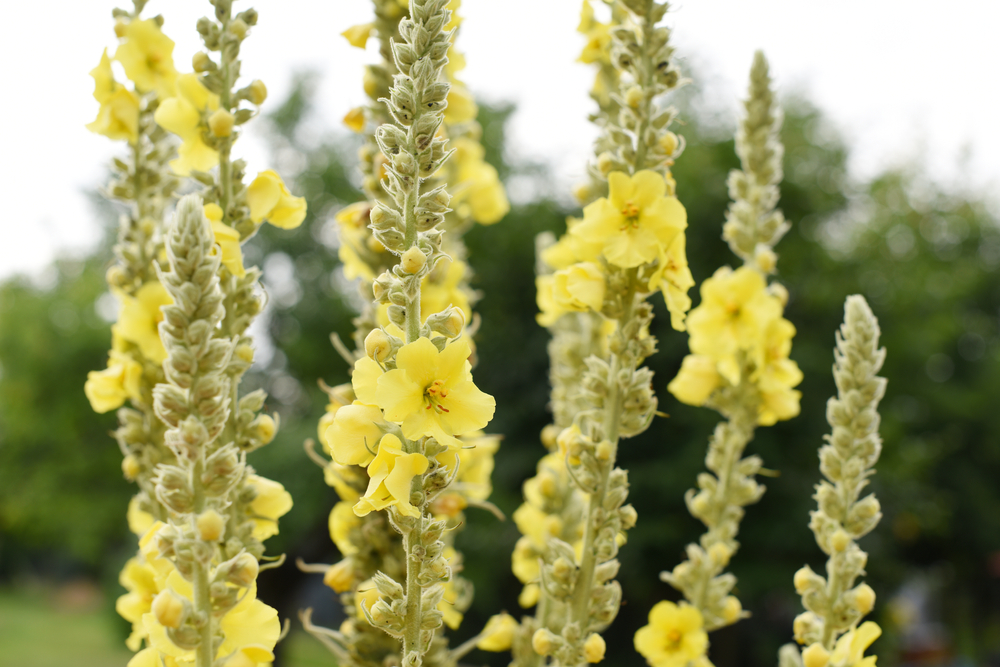
Mullein tea is the essence extracted from the leaves and flowers of these magnificent plants, capturing their essence in a cup of liquid wonder.
This enchanting brew has been revered for centuries for its myriad health benefits and soothing properties. When the leaves and flowers of the mullein plant are carefully dried and steeped in hot water, they release a delicate yet refreshing infusion. The resulting liquid embodies the essence of nature's gentle embrace—a mild, slightly sweet elixir with a subtle floral aroma that dances on the palate.
But what makes Mullein tea so special is its potential to ease respiratory woes. The tea is believed to have expectorant properties that can help loosen phlegm and clear the airways.
Some individuals also consume mullein tea for its potential calming effects on the nervous system, making it a popular choice for promoting relaxation and reducing anxiety.
However, it's essential to remember that while mullein tea has a history as a home remedy, the scientific evidence supporting its health claims may be different. Therefore, it's wise to consult modern medicine in case of any discomfort noticed after consumption.
20 Health Benefits Of Mullein Tea
The herb tea brewed is caffeine-free and is brewed to enhance its flavor and get the most out of its health benefits.
1. Mullein Tea for Lungs
Mullein tea may be your trusty sidekick when it comes to battling coughs. Its superpower lies in its ability to soothe the irritated respiratory tract. Sip on a warm cup of mullein tea and let it work its magic to ease that annoying cough. When you're feeling all congested, mullein tea can save the day. It has expectorant properties that can help loosen and expel stubborn mucus, clearing up your airways, and bronchial tubes and restoring a sense of respiratory freedom.
A study published recently found that mullein extracts possess cough-suppressing properties, providing relief for respiratory discomforts like coughs and bronchitis (1).
2. Mullein Tea for Viral Infection

Mullein tea comes to the rescue when it comes to battling those viral infections. With its potential antiviral properties, it's like a superhero to save the day and fight off those viruses. By supporting your immune system's function, it can help fend off viral infections and keep you feeling your best (2).
While specific studies on mullein tea's antiviral effects are limited, research published in the journal Virology Journal demonstrated that certain compounds found in mullein exhibited antiviral activity against the respiratory syncytial virus (RSV). This suggests mullein tea may have the power to combat viral infections (3).
3. Mullein Tea for Asthma
Mullein tea can be a breath of fresh air for individuals with asthma. Its unique properties may help relax the airways, easing breathing difficulties and providing relief from asthma symptoms. Mullein tea stealthily works to combat the inflammation and constriction that often occur in the airways of individuals with asthma. It may help reduce inflammation and promote healthy airflow, allowing you to breathe more easily (4).
Studies published demonstrate the anti-inflammatory properties of mullein extracts. These properties could contribute to its potential benefits in reducing airway inflammation associated with asthma (5).
4. Mullein Tea for Sinusitis
Sinusitis often comes with a stuffy nose and blocked sinuses. Fear not since mullein tea helps to loosen mucus and clear those congested nasal passages. Mullein tea has a soothing touch that can help calm irritated sinus tissues. It may provide relief from sinus pain, pressure, and discomfort, allowing you to breathe easier and feel more comfortable.
Mullein tea's expectorant properties can aid in the removal of mucus from the respiratory system. Mullein tea's soothing and anti-inflammatory properties may help alleviate sinus symptoms (6).
While specific studies on mullein tea's effects on sinus congestion are limited, its traditional use as a decongestant suggests its potential benefits for sinusitis.
5. Mullein Tea May Exhibit Anti-inflammatory Properties
Its natural compounds may help calm inflammation, providing relief from a variety of inflammatory conditions. Mullein may inhibit the production or activity of certain inflammatory mediators, such as cytokines, prostaglandins, and leukotrienes, which are involved in the inflammatory response.
Flavonoids, in particular, have been associated with anti-inflammatory effects in various studies (7).
6. Mullein Tea May Boosts Immunity
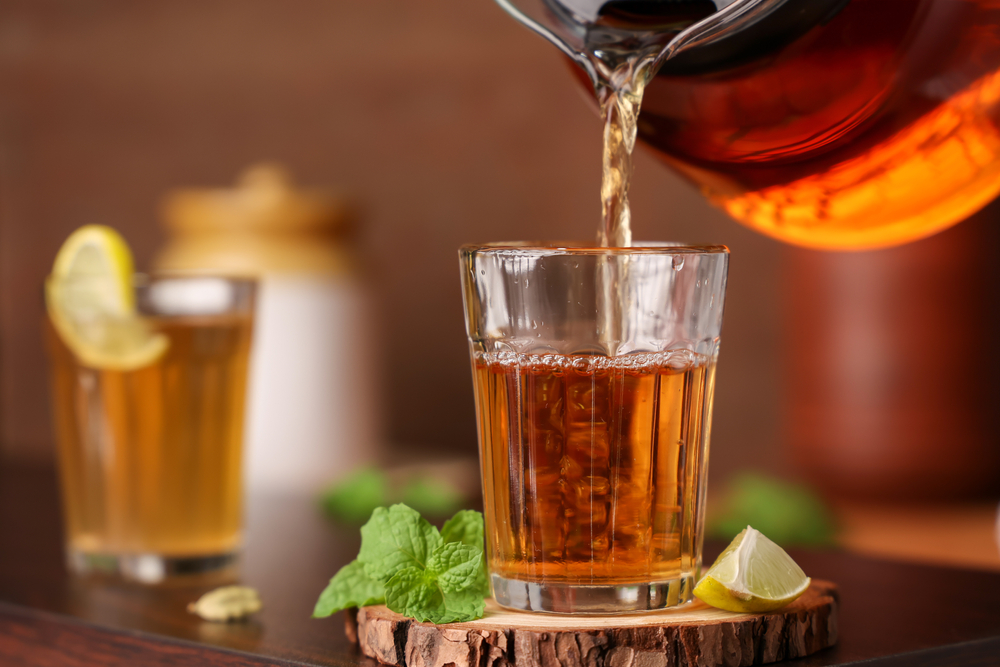
While mullein tea is often associated with soothing respiratory issues, mullein does contain certain compounds that have been found to support immune health. Mullein leaves and flowers are rich in antioxidants, which can help protect the body against oxidative stress (8).
Oxidative stress can weaken the immune system, so consuming foods or beverages high in antioxidants, like mullein tea, may indirectly support immune function.
By inhibiting the growth of harmful microorganisms, mullein tea may indirectly aid the immune system by preventing infections (8).
It's important to note that while mullein tea may have potential benefits for immune health, it should not replace other established practices for supporting immunity, such as a balanced diet, regular exercise, adequate sleep, and proper hygiene.
7. Mullein Tea for Pain Relief
Mullein tea has a long history of traditional use for its potential pain-relieving properties. It contains certain compounds that may have analgesic or pain-relieving effects. These compounds can potentially help alleviate various types of pain, including joint pain, earaches, and headaches. When consumed as a warm beverage, it can have a calming and comforting effect, which may indirectly help alleviate pain or discomfort.
A study found that mullein extracts exhibited significant pain-relieving effects, suggesting their potential as a natural analgesic (7).
8. Mullein Tea for Digestive Discomfort
Mullein tea is often praised for its soothing properties, which can help alleviate digestive discomforts such as indigestion, bloating, and cramping. The fiber from the mullein plant helps with bowel movements and eases digestion. The laxative benefits of mullein also help relieve constipation by softening stools and increasing gut health (4).
Further, the anti-inflammatory properties may also help reduce stomach pain and bloating. The antioxidant properties help protect the stomach’s mucosa layer from acid reflux.
While scientific studies specifically investigating mullein tea's effects on digestion are scarce, its traditional use suggests its potential for providing relief from digestive symptoms. The warm and soothing nature of mullein tea may help relax the digestive system and ease discomfort (7).
9. Mullein Tea for Sore Throat
So, how does mullein tea work? Well, it is like a nice, comforting hot brew on a rainy day. It has components called "demulcent," which means it forms a protective coating in your throat. That coating helps reduce pain and irritation, like a soft blanket for your vocal cords.
But that's not all! Mullein tea can help clear out the gunk, like phlegm and mucus, from your throat. It's like a superhero that swoops in and saves the day, making it easier for you to breathe and speak clearly.
According to the studies, demulcents contain a higher amount of mucilage which has a soothing effect for throats. This increases the efficacy of mullein (1).
10. Mullein Tea for Healthy Skin
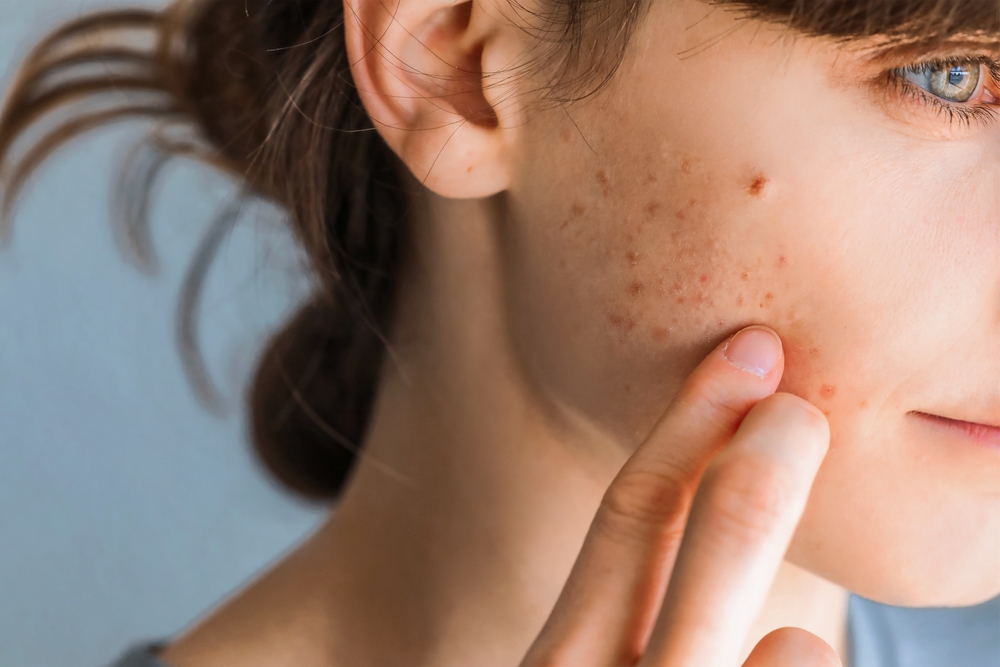
Mullein contains compounds with potential anti-inflammatory properties. Inflammation plays a role in several skin conditions, such as acne, eczema, and psoriasis. By reducing inflammation, mullein tea might help alleviate symptoms associated with these conditions (9).
The extracts of Mullein flower contain oil, which, when applied to the affected areas of skin conditions like eczema, may help soothe the infected area. Mullein leaf extracts can also be applied topically to wounds, blisters, or acne.
11. Mullein Tea for a Good Sleep
Yes, Mullein tea makes you sleepy. This might seem like an understatement until you try it. After a long, tiresome day, all you need is a warm cup of coffee, but caffeine won't let you sleep, so instead, try mullein tea this time.
Mullein tea is known for its calming and soothing effects, which help relax the nerves. The act of drinking warm herbal tea itself can have a comforting effect and signal the body to wind down. While no studies specifically focus on mullein tea for sleep, herbal teas, in general, have been used traditionally for their relaxing properties.
Experts suggest that tea contains compounds that have sedative effects and help you snooze (7).
12. Mullein Tea to Alleviate Anxiety
One of the significant benefits of Mullein tea is its ability to relieve stress. Since mullein tea has proven evidence of supporting and strengthening nervous functions, it is also used for treating stress and anxiety (7).
13. Mullein Tea Eases Headaches
Dehydration is a common cause of headaches, and staying adequately hydrated can help prevent and alleviate them (10). Drinking mullein tea, like any warm beverage, can contribute to hydration and potentially relieve headaches caused by dehydration. This relaxation may help alleviate tension headaches, which are often associated with muscle tension and stress. Also, due to its anti-inflammatory and analgesic properties, headaches seem to vanish without much trouble.
Traditional herbal medicine has used various plants, including mullein, to address headaches. While scientific evidence is limited, some herbalists and alternative medicine practitioners suggest that mullein tea may have mild analgesic (pain-relieving) properties, potentially helping with certain types of headaches (10).
14. Mullein Tea to Fight Fever
Mullein tea is not commonly associated with fighting fevers directly. Fever is typically a symptom of an underlying illness or infection, and it's important to address the root cause of the fever rather than relying solely on herbal remedies. However, mullein tea may have certain properties that could contribute to overall comfort and well-being during a fever (11). For example, sipping on warm tea may provide comfort and help you relax during a fever.
If your fever is accompanied by respiratory symptoms, mullein tea may help alleviate coughing and congestion, making you feel more comfortable. Also, mullein has been traditionally used to support the immune system. Strengthening the immune response may indirectly contribute to fighting off the underlying cause of the fever.
15. Mullein Tea for Ear Infections
Mullein oil rather than mullein tea is beneficial for ear infections. The antibacterial properties of mullein may be useful in treating middle ear infections, as per the research (12). The oil is derived from the flowers of the mullein plant and is known for its soothing and anti-microbial properties. It is important to note that while mullein oil is a popular folk remedy, there is limited scientific research supporting its efficacy for treating ear infections.
16. Mullein for COPD
Mullein tea is often recommended as a natural remedy for many respiratory conditions, including chronic obstructive pulmonary disease (COPD). COPD is a chronic inflammatory lung disease that causes breathing difficulties and reduces lung function over time.
Mullein tea is known for its soothing properties, and it may help alleviate certain symptoms associated with COPD, such as coughing, congestion, and throat irritation. It is also believed to have expectorant effects, which can assist in loosening mucus in the airways. This may make it easier to cough up and clear excess mucus, potentially providing some relief for individuals with COPD (13).
The disease involves chronic inflammation of the airways. Mullein is reported to have anti-inflammatory properties, which may help reduce inflammation and contribute to overall respiratory health.
17. Mullein Tea to Relieve Menstrual Cramps

As the menstrual cramp comes with its unbearable pain every month, mullein tea emerges as the valiant knight, armed with anti-inflammatory and antispasmodic powers. The bioactive compounds within its leaves embark on a journey to soothe the uterine muscles (10).
Its gentle warmth permeates the body and touches the abdominal region with a calming sensation. The tea's essential oils release tension, reducing pain.
Through the mullein leaves, it stimulates the production of prostaglandins, hormones that regulate the contraction and relaxation of the uterine muscles. By harmonizing these hormonal forces, Mullein Tea ensures a smoother and less agonizing menstrual journey.
The soothing embrace of Mullein's powers brings about a deep sense of relaxation, allowing one to escape the clutches of pain (6).
18. Mullein Tea for Thyroid Issues
This charismatic herb contains potent bioactive compounds, such as flavonoids and glycosides, that engage in a captivating relationship with the thyroid (14). As you sip through the tea, it stimulates the gland, encouraging it to perform its vital functions with renewed vigor.
Mullein tea excels at balancing thyroid hormones. The tea helps treat the overactive thyroid gland, a condition called hyperthyroidism. This herbal brew acts as a tonic, nourishing the thyroid gland and promoting its proper function. Through its interaction with the endocrine system, mullein tea encourages the thyroid to achieve a state of equilibrium.
19. Mullein Tea for UTI
Mullein tea is believed to possess diuretic properties, meaning it may increase urine production and promote the flushing out of waste products and toxins from the urinary system. As the urine flow increases, the risk of urinary tract infections (UTIs) (by eliminating bacteria from the urinary tract) decreases.
Mullein tea is often used to alleviate inflammation and irritation in various parts of the body, including the urinary tract. It contains mucilage, a gelatinous substance that can help soothe irritated tissues. This soothing effect may help reduce the discomfort associated with certain urinary tract conditions.
Although more research is necessary, mullein possesses compounds with antimicrobial properties. Saponins and flavonoids have demonstrated antimicrobial activity against various bacteria and fungi infections. While this hasn't been extensively studied for Mullein's effects on the urinary tract, it suggests a potential benefit in preventing or treating UTIs (15).
20. Mullein Tea for Tuberculosis
Tuberculosis is caused by the bacterium Mycobacterium tuberculosis and primarily affects the lungs. It is typically treated with a combination of antibiotics prescribed by a professional. Proper medical care is crucial to effectively manage and treat tuberculosis.
While mullein tea has been used in traditional medicine to treat respiratory health, there is limited scientific evidence specifically linking it to the prevention or treatment of tuberculosis.
Mullein may have some expectorant and soothing properties that can help relieve coughs and congestion associated with respiratory infections, but it does not have direct antimicrobial activity against Mycobacterium tuberculosis (1).
How to Make Mullein Tea?
Mullein tea is a soothing herbal infusion made from the leaves and flowers of the mullein plant (Verbascum thapsus). It is a well-known herb for its potential respiratory benefits and has a pleasant taste. Making mullein tea is no big deal and can be made easily without any hassle.
- Gather the Ingredients: To make mullein tea, you will need dried mullein leaves or flowers. These can be obtained from health food stores, and herbal shops, or you can dry them yourself if you have access to fresh mullein plants. Ensure that the mullein you use is from a trusted source.
- Prepare the Mullein: If you are using fresh mullein leaves or flowers, gently wash them to remove any dirt or debris. If using dried mullein, you can skip this step. Once clean, you can either crush the leaves and flowers slightly or leave them whole—this will help release the beneficial compounds during brewing.
- Boil Water: Bring a pot of fresh, filtered water to a boil. The amount of water you use will depend on how many servings of mullein tea you want to make. 240 ml of water is a general serving for one person.
- Infuse the Mullein: Add the prepared mullein leaves or blossoms to the saucepan after the water has reached a rolling boil, then turn off the heat. Use approximately one tablespoon of dried mullein per cup of water. If using fresh mullein, you may need to use it slightly more. Stir gently to ensure the mullein is fully immersed in the water.
- Steep the Tea: Let the tea sit in a covered pot for 10-25 minutes. This allows the beneficial compounds to infuse into the water and create a flavorful tea.
- Strain the Tea: strain the tea using a fine mesh strainer or a cheesecloth. This will remove any solid particles, leaves, or flowers, resulting in a clear tea.
- Serve and Enjoy: Pour the mullein tea into your favorite cup or mug. Take a moment to savor the aroma and appreciate the soothing qualities of the tea. Drink it while it's warm for the best experience.
Mullein tea can be enjoyed at any time of the day, but because of its relaxing effects, many individuals find it to be especially peaceful in the late afternoon or just before bed.
Remember, it's always a good idea to speak with a healthcare provider before introducing herbal beverages like mullein tea into your regimen if you have any underlying medical concerns or are taking drugs.
Enjoy your homemade mullein tea and any respiratory health advantages it may provide!
Feel free to experiment with these recipes by adjusting the quantities of herbs or adding other complementary herbs and spices in the following recipes. It's important to remember that everyone's taste preferences may vary, so feel free to customize the recipes to suit your tastes.
1. Mullein and Mint Tea:
The menthol present in peppermint leaves provides a soothing and refreshing sensation, aiding in digestion and relieving gastrointestinal discomfort. It may help with bloating, constipation, or stomach cramps too.
Additionally, peppermint tea has been used to relieve sinus congestion and promote respiratory health due to its decongestant properties (16).
Ingredients:
- 1 tablespoon dried mullein leaves and/or flowers
- 1 tablespoon dried or fresh mint leaves
- 2 cups of water
Instructions:
- Boil 2 cups of water in a small pot or kettle.
- Add 1 tablespoon each of dried mullein leaves and dried mint leaves to the boiling water.
- Turn off the heat and let the herbs steep for about 10-15 minutes.
- Strain the tea to remove the herbs.
- Serve the mullein and mint tea hot.
2. Mullein and Chamomile Tea:
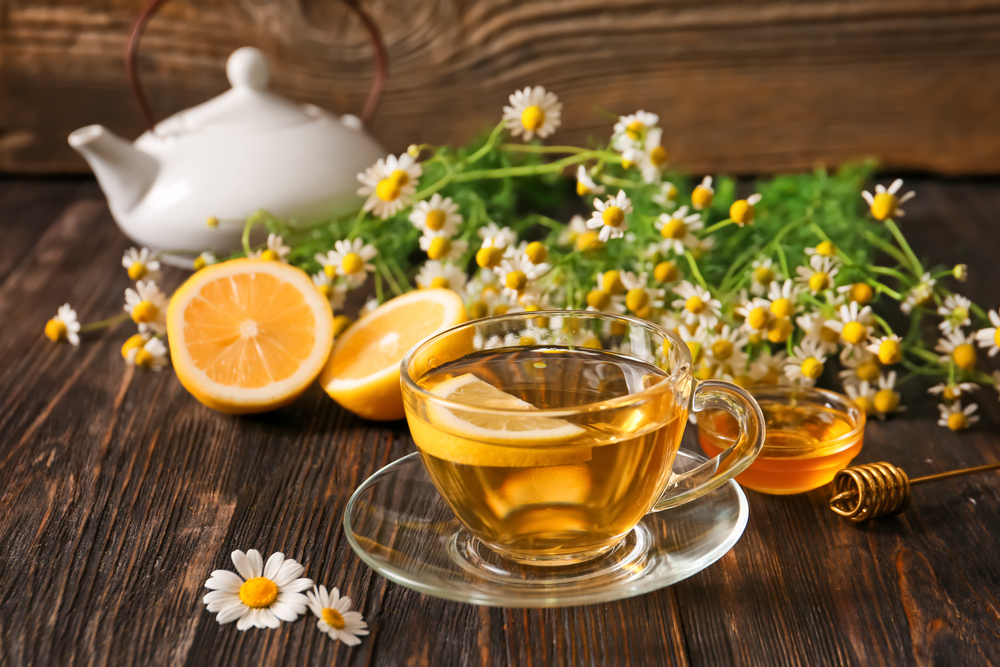
Chamomile contains compounds like apigenin, which act as natural sedatives, helping to reduce anxiety and promote a sense of tranquility. It is often used as a natural remedy for insomnia and restlessness. Its anti-inflammatory properties help deal with digestive issues. It may also help alleviate menstrual cramps and reduce inflammation associated with conditions like arthritis (17).
Ingredients:
- 1 tablespoon dried mullein leaves and/or flowers
- 1 tablespoon dried chamomile flowers
- 2 cups of water
Instructions:
- Bring 2 cups of water to a boil.
- Add 1 tablespoon each of dried mullein leaves and dried chamomile flowers to the boiling water.
- Turn off the heat and allow the herbs to steep for about 10-15 minutes.
- Strain the tea to remove the herbs.
- Enjoy the soothing blend of mullein and chamomile tea, and you can sweeten it with honey if desired.
3. Mullein and Elderberry Tea:
Flowers derived from the purple elderberry plant are well-known for their antiviral properties. The anthocyanins in elderberries possess anti-inflammatory properties, making them a popular choice for cold and flu seasons. It may also help with cardiovascular and blood pressure issues (18).
Ingredients:
- 1 tablespoon dried mullein leaves and/or flowers
- 1 tablespoon dried elderberries
- 2 cups of water
Instructions:
- Boil 2 cups of water in a small pot or kettle.
- Add 1 tablespoon each of dried mullein leaves and dried elderberries to the boiling water.
- Reduce the heat to low and let the herbs simmer for about 15 minutes.
- Strain the tea to remove the herbs and berries.
- Serve the mullein and elderberry tea hot, and you can add a squeeze of lemon or a touch of honey to enhance the flavor.
4. Mullein, Lemon, and Honey Tea
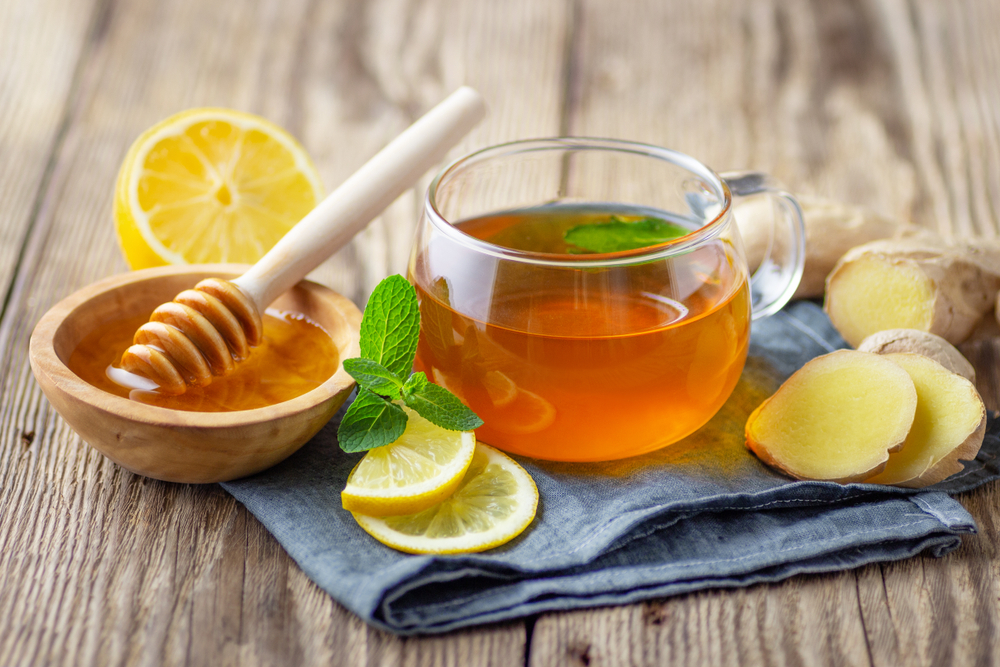
Honey and lemon tea is a soothing and refreshing beverage that offers several potential health benefits. The combination of honey and lemon provides a natural remedy for a sore throat, and relief from cough as the honey forms a protective coating and the lemon offers a soothing sensation with its antioxidant properties (19).
Ingredients:
- 1 tablespoon dried mullein leaves and/or flowers
- 2 cups of water
- Honey and lemon
instructions:
- Boil water: Bring 2 cups of water to a boil in a small pot or kettle.
- Once the water is boiling, add 1 tablespoon of dried mullein leaves to the pot.
- Turn off the heat and let the mullein steep in the hot water for about 10-15 minutes. This allows the beneficial compounds in the mullein to infuse into the water.
- After steeping, strain the tea using a fine mesh strainer or cheesecloth to remove the mullein leaves and flowers. This will result in a clear tea without any plant material.
- Pour the mullein tea into a cup or mug. You can enjoy it as is or add honey or lemon to enhance the flavor if desired.
Mullein Tea Side Effects
The plant itself is native to Europe, North Africa, and Asia but has become naturalized in many other regions. With Mullien’s long history of traditional medicine in many countries, it is well-known for its respiratory cures.
While rare, some individuals may have an allergic reaction to mullein tea. One of the most common symptoms is a severe or mild skin rash. At times, it might become necessary to seek medical help.
This is not so common, but some individuals may experience gastrointestinal discomfort, such as nausea, vomiting, or diarrhea. These effects are typically mild and temporary, subsiding on their own without medical intervention.
There is limited scientific evidence suggesting that mullein tea may have estrogenic properties, meaning it could potentially affect hormone levels in the body. However, there is not enough research to establish a definitive link, and the currently available evidence does not indicate any significant hormonal effects.
Mullein tea contains compounds called furanocoumarins, which have been associated with increased sensitivity to sunlight. While this effect is more commonly associated with the external use of mullein oil, it is advisable to exercise caution and use sun protection measures if consuming mullein tea in large quantities, particularly for individuals with light or sensitive skin.
Mullein tea may interact with certain medications, including blood thinners and drugs metabolized by the liver. It is crucial to consult with a healthcare professional if you are taking any prescription medications before incorporating mullein tea into your routine.
Conclusion
In conclusion, the benefits of mullein tea are myriad. With its soothing properties and rich nutrient profile, mullein tea has become a popular choice in traditional medicine and herbal remedies.
The mullein leaf benefits are primarily attributed to its expectorant, anti-inflammatory, and antimicrobial properties. It has been traditionally used to deal with respiratory issues such as coughs, and sore throats, Mullein tea also possesses analgesic properties, making it a natural remedy for soothing sore throats.
Moreover, it is rich in antioxidants, which play a crucial role in reducing oxidative stress and supporting overall well-being. These further contribute to improved immune function.
With its easy-to-make process, one can find Mullein tea bags in the market, online, or in the form of extracts or capsules too.
While mullein tea is safe to consume, starting with a small portion and continuing if no side effects are noticed is advisable. Since it may react with certain medications or lead to skin allergies, it is best to seek professional help.
Source:
1. Biological activity of Common Mullein, a medicinal plant
2. Antiviral effect and mode of action of methanolic extract of Verbascum thapsus L. on pseudorabies virus (strain RC/79)
https://pubmed.ncbi.nlm.nih.gov/21999656/
3. Identification of herbal teas and their compounds eliciting antiviral activity against SARS-CoV-2 in vitro
https://bmcbiol.biomedcentral.com/articles/10.1186/s12915-022-01468-z
4. Risks and Benefits of Commonly used Herbal Medicines in México
https://www.researchgate.net/publication/244889874_Botanical_Medicine_for_Thyroid_Regulation
5. The evaluation of sterile solutions of Ilwensisaponin A and C from Verbascum pterocalycinum var. mutense Hub.-Mor. on antiviral, antinociceptive and anti-inflammatory activities
https://www.ncbi.nlm.nih.gov/pmc/articles/PMC643878/
6. Searching for Scientific Explanations for the Uses of Spanish Folk Medicine: A Review on the Case of Mullein (Verbascum, Scrophulariaceae)
https://www.ncbi.nlm.nih.gov/pmc/articles/PMC8301161/
7. Anthelmintic and relaxant activities of Verbascum Thapsus Mullein
https://www.ncbi.nlm.nih.gov/pmc/articles/PMC3350428/
8. The Antioxidant, Anticarcinogenic and Antimicrobial Properties of Verbascum thapsus L
https://pubmed.ncbi.nlm.nih.gov/31456524/
9. Simultaneous contact dermatitis caused by Asteraceae and Verbascum thapsus
https://pubmed.ncbi.nlm.nih.gov/28386973/
10. Magnesium in headache
11. Antiviral Activity of Some Plants Used in Nepalese Traditional Medicine
https://www.ncbi.nlm.nih.gov/pmc/articles/PMC2781767/
12. Antimicrobial Activity of Garlic Derivatives on Common Causative Microorganisms of the External Ear Canal and Chronic Middle Ear Infections
https://cms.galenos.com.tr/Uploads/Article_43052/tao-57-161-En.pdf
13. Mullein – Health Information Library
https://www.peacehealth.org/medical-topics/id/hn-2133009
14. Botanical Medicine for Thyroid Regulation
https://www.researchgate.net/publication/244889874_Botanical_Medicine_for_Thyroid_Regulation
15. Mahdavi S, Amiradalat M, Babashpour M, Sheikhlooei H, Miransari M. The antioxidant, anticarcinogenic and antimicrobial properties of Verbascum thapsus L [published online ahead of print, 2019 Aug 28]. Med Chem. 2019.
https://pubmed.ncbi.nlm.nih.gov/31456524-the-antioxidant-anticarcinogenic-and-antimicrobial-properties-of-verbascum-thapsus-l/
16. A Descriptive Overview of the Medical Uses Given to Mentha Aromatic Herbs throughout History
https://www.ncbi.nlm.nih.gov/pmc/articles/PMC7767097/
17. Efficacy of Chamomile in the Treatment of Premenstrual Syndrome: A Systematic Review
https://www.ncbi.nlm.nih.gov/pmc/articles/PMC6970572/
18. Elderberry Supplementation Reduces Cold Duration and Symptoms in Air-Travellers: A Randomized, Double-Blind Placebo-Controlled Clinical Trial
https://pubmed.ncbi.nlm.nih.gov/27023596/
19. Effect of honey on nocturnal cough and sleep quality: a double-blind, randomized, placebo-controlled study





 JOIN OUR WHATSAPP CHANNEL
JOIN OUR WHATSAPP CHANNEL












































